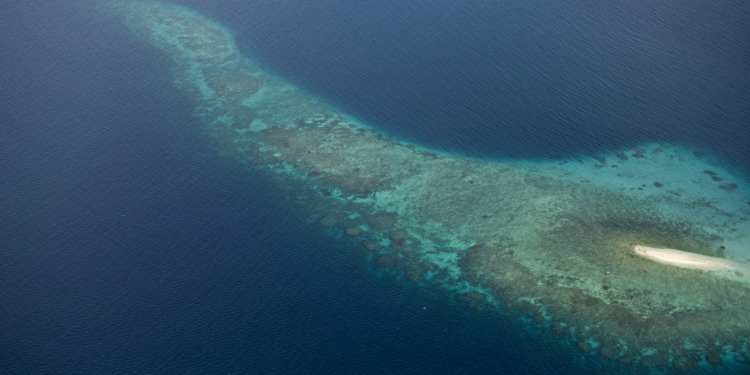Do countries have an obligation to protect our climate for the well-being of people living today? What about the well-being of those not yet born? If countries harm the climate system and vulnerable states, what might be the legal consequences under international law?
These are the questions the UN General Assembly (UNGA) posed to the International Court of Justice (ICJ) – the principal judicial organ of the UN – in a recent request for an advisory opinion. This Policy Brief reflects on this request, its nature, the process thus far, and what we can expect in the coming months.
According to the UN Charter, UN organs and specialized agencies may rely on the ICJ’s advisory jurisdiction and request an advisory opinion on a legal question. While the ICJ’s advisory opinions are not legally binding, they can clarify rights and obligations of States under existing binding international law and, as such, carry significant legal weight and authority.
The Court’s ruling would thus provide a clear legal benchmark and remove any ambiguity surrounding countries’ obligations under international law in respect of climate change. This, in turn, would help strengthen multilateral negotiations, accelerate redress of loss and damage, and pin down a fast mitigation target.
The idea of bringing a climate change case before the ICJ is not new. Back in 2002, Tuvalu – a small island developing State (SIDS) vulnerable to the rising sea levels and other impacts of climate change – considered bringing a claim against the US and Australia, two Annex I (developed country) parties to the UNFCCC and major greenhouse gas (GHG) emitters. At the time, neither Australia nor the US had ratified the Kyoto Protocol that would provide for quantified emissions limitation or reduction commitments for each country.
In 2011, having gathered the support of more than 30 like-minded countries, another SIDS, Palau, led an attempt to have the UNGA request an ICJ advisory opinion to clarify the legal responsibility of the largest emitters with respect to climate change. This was met with pushback from the US, and fears of losing billions in foreign aid for education, healthcare, and other sustainable development objectives led to the initiative being postponed.
Vulnerable countries never abandoned their desire to have the World Court weigh in on the issue of climate change. In 2023, having shored up its case with scientific evidence from the Intergovernmental Panel on Climate Change (IPCC) and secured the backing of more than 130 developing and developed countries, a small Pacific island State of Vanuatu spearheaded a UNGA resolution requesting the ICJ for an advisory opinion clarifying countries’ obligations under international law to protect the climate system from anthropogenic GHG emissions “for States and for present and future generations.”
It was also thanks to Vanuatu’s efforts as the first Chair of the Alliance of Small Island States (AOSIS) that loss and damage appeared on the UNFCCC agenda. Back in 1991, Vanuatu made sure reference to insurance for vulnerable countries against adverse effects of climate change was included in the text of the Convention itself. Its continued efforts over the years also contributed to other advancements on loss and damage in the international climate talks, including the adoption of the Warsaw Mechanism for Loss and Damage in 2013 and the establishment of funding arrangements to address loss and damage in 2023.
But progress in multilateral negotiations has been slow. It is worth noting that the loss and damage fund is currently voluntary, amounts pledged are negligible compared to needs, and there is legal ambiguity in ensuring vulnerable countries reach equitable funds. As it stands, vulnerable States rely primarily on loans to deal with climate-induced losses and damages, which puts even more pressure on their already fragile financial systems. Therefore, the UNGA’s request for an ICJ advisory opinion is especially timely as there is an urgent need for certainty around countries’ existing international legally binding obligations in respect of climate change.
Request for an advisory opinion
On March 29, 2023, at its 64th plenary meeting, the UNGA adopted a resolution (A/RES/77/276), proposed by a group of over 100 countries, deciding on the questions it would put to the ICJ. Citing the UN Charter, key human rights treaties, the UNFCCC and the Paris Agreement, and the UN Convention of the Law of the Sea (UNCLOS), along with the fundamental principles of international environmental law, the Assembly asked the Court two questions:
- What are the obligations of States under international law to ensure the protection of the climate system and other parts of the environment from anthropogenic greenhouse gas (GHG) emissions for States and for present and future generations?
- What are the legal consequences under these obligations for States where they, by their acts and omissions, have caused significant harm to the climate system and other parts of the environment, with respect to: a) States, including small island developing States (SIDS), which, due to their geographical circumstances and level of development, are injured or specially affected by, or are particularly vulnerable to, the adverse effects of climate change? b) Peoples and individuals of the present and future generations affected by the adverse effects of climate change?
On April 12, 2023, the ICJ received the General Assembly’s request for an advisory opinion on obligations of States in respect of climate change, and proceedings commenced.
To support the UNGA’s request, the UN Secretariat prepared and transmitted to the ICJ an eight-part dossier of documents “that are likely to throw light upon these questions.” These include:
- Multilateral treaties relating to climate change, biodiversity, desertification, protection of the ozone layer, the law of the sea, and human rights;
- Scientific reports by the Intergovernmental Panel on Climate Change (IPCC) and other selected institutions;
- Documentation of the development of international law in the areas of State responsibility for internationally wrongful acts, protection of the atmosphere, protection of persons in the event of disasters, protection of the environment in relation to armed conflict, transboundary harm from hazardous activities, and sea level rise in relation to international law;
- Documents relating to the protection of the climate system and other parts of the environment, including UNGA resolutions on protection of climate for present and future generations, the Rio Conventions, and other select documents on the environment;
- Outcomes of UN conferences and follow-up processes and related documents, including the Millennium Summit and Sustainable Development Conferences and other conferences and processes;
- Resolutions by the UNGA and reports on the law of the sea; and
- Documents on human rights and climate change, including: UNGA resolutions; Human Rights Council resolutions; reports submitted to the Human Rights Council; general comments, recommendations, and statements by UN human rights treaty bodies; and reports and statements by the special procedures mechanisms of the Human Rights Council.
Related Articles: Island Nations Turn to World’s Highest Court for Climate Justice | What the International Court of Justice’s Upcoming Advisory Opinion Means for Climate Action | Vanuatu Receives Critical Support for Climate Change Protections
Participating entities in the advisory proceedings
Under the Court’s Statute, members of the organ, organization, or agency requesting an advisory opinion can take part in the proceedings. In this case, because the UNGA requested the opinion, all UN Member States are entitled to participate.
On April 17, 2023, the Deputy-Registrar of the ICJ gave notice of the request for an advisory opinion to all States entitled to appear before the Court. On 20 April, the President of the Court fixed the deadlines for written submissions (20 October 2023) and for comments on the written statements made by others (January 22, 2024). These time limits were subsequently extended twice and are currently due to expire on March 22, 2024 and June 24, 2024, respectively.
A number of countries, including Chile, Kiribati, Nauru, and Vanuatu, have indicated they intend to participate in the proceedings.
Several international organizations also requested they be allowed to participate. Ruling them likely to be able to furnish information on the questions submitted to the Court, the ICJ permitted the following organizations to submit written statements and respond to written statements made by others: the African Union (AU); the Alliance of Small Island States (AOSIS); the Commission of Small Island States on Climate Change and International Law (COSIS); the European Union (EU); the Forum Fisheries Agency; the International Union for the Conservation of Nature (IUCN); the Melanesian Spearhead Group (MSG); the Organisation of African, Caribbean and Pacific States (OACPS); the Organization of the Petroleum Exporting Countries (OPEC); the Pacific Community; the Pacific Island Forum (PIF); and the Parties to the Nauru Agreement.
What’s next?
The Court has authorized the filing of written comments in which the States or organizations that have submitted written statements may comment on the statements made by other States and organizations. As mentioned above, the deadline for written comments is June 24, 2024.
Following these two rounds of written submissions, the ICJ will conduct oral proceedings that are expected to take place in or around October 2024. Once the written and oral proceedings have concluded, the Court will retire to begin its deliberation, following which it will deliver its advisory opinion in open court. This is expected to occur in early 2025.
* *
![]() This article was originally published by the International Institute for Sustainable Development (IISD) and is republished here as part of an editorial collaboration with the IISD.
This article was originally published by the International Institute for Sustainable Development (IISD) and is republished here as part of an editorial collaboration with the IISD.
It is part of a project that seeks to raise awareness and build momentum and knowledge around the ICJ advisory opinion on obligations of States in respect of climate change and to promote a better understanding of the implications of the advisory opinion among sustainable development decision makers. This work is funded by the Foundation for International Law for the Environment (FILE).
Editor’s Note: The opinions expressed here by the authors are their own, not those of Impakter.com — In the Cover Photo: An aerial view of Marovo Lagoon in the Western Province of the Solomon Islands. Cover Photo Credit: UN Photo/Eskinder Debebe.









